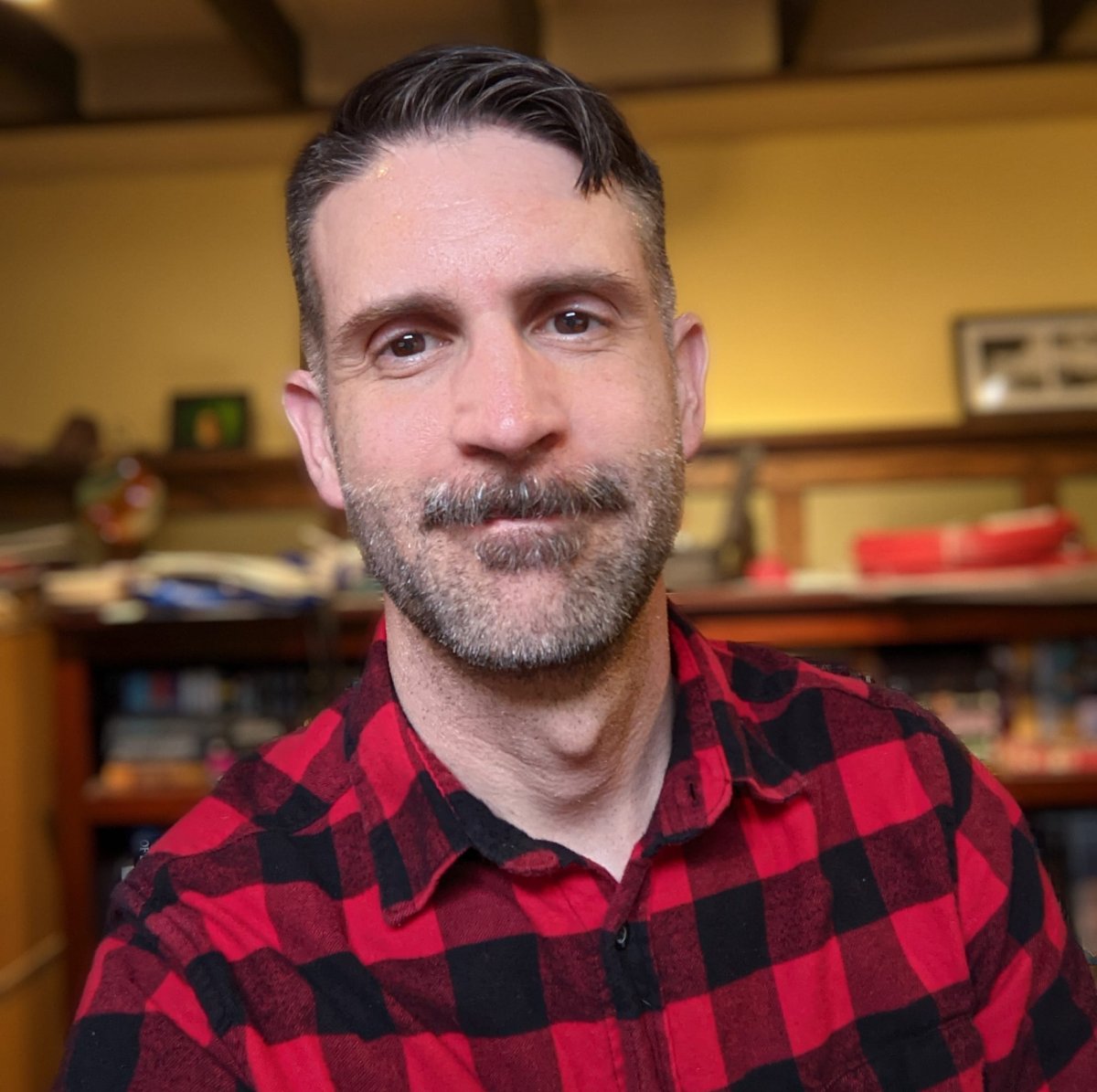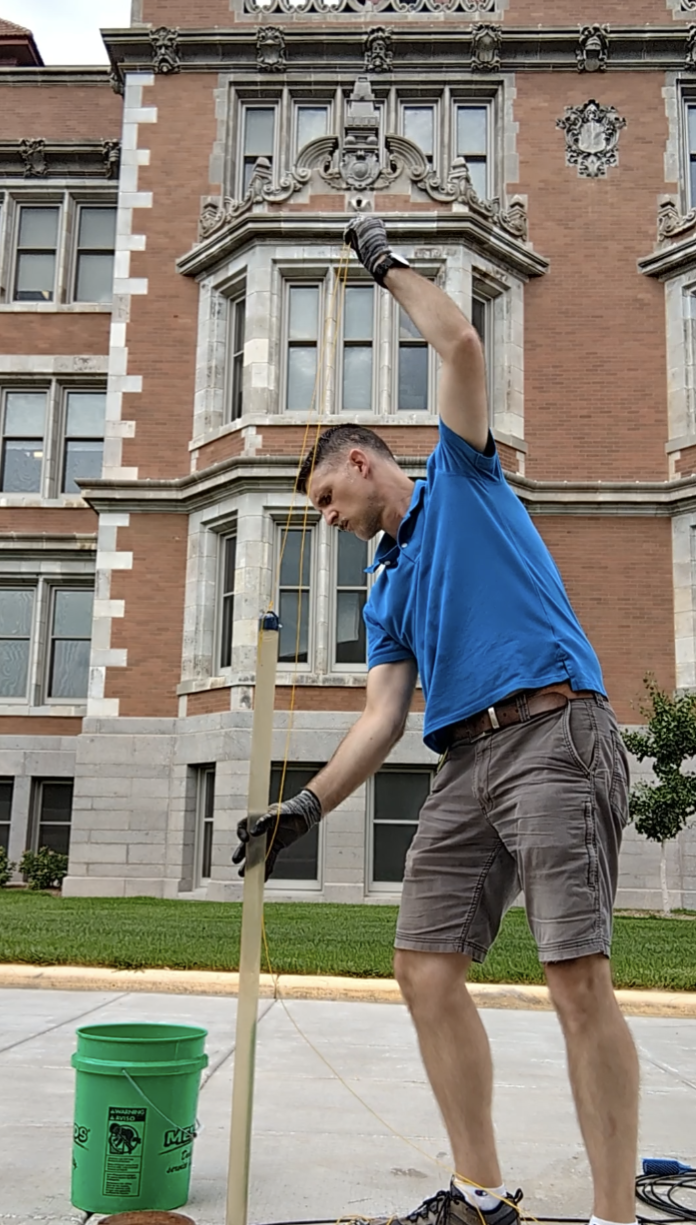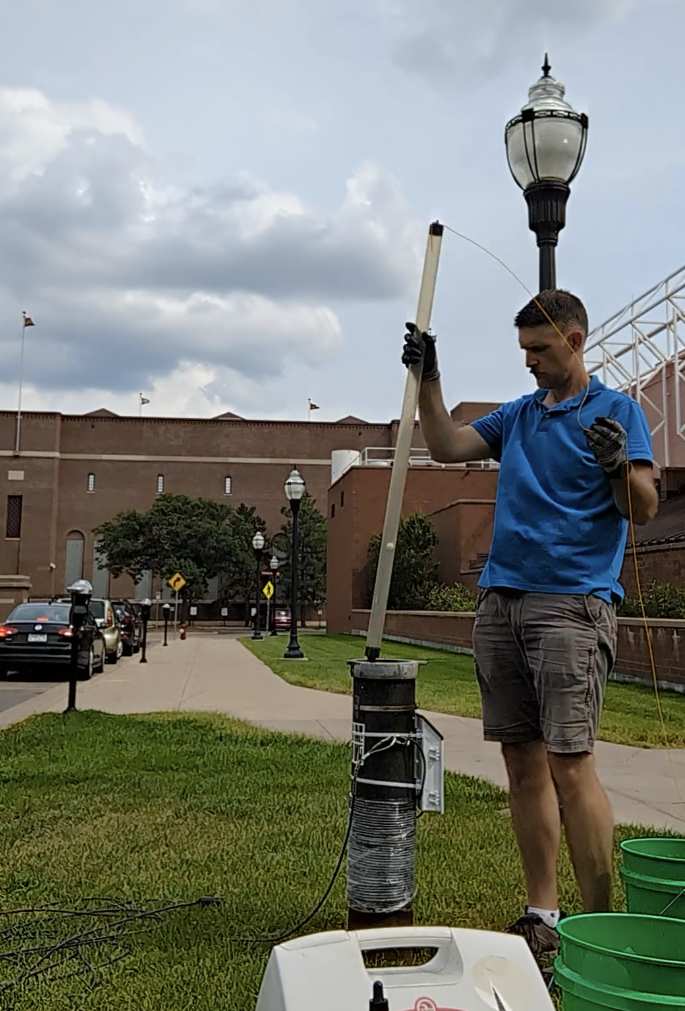Grad Student Receives Mistletoe Fellowship


John McDaris, a 6th year PhD candidate in ESCI working with Joshua Feinberg, was named a Mistletoe Research Fellow in November, 2023. The Mistletoe Research Fellowship is a program of the Momental Foundation which provides resources and professional development for PhD students and post-docs across the STEM disciplines. Working with a dozen institutions world-wide, the Foundation selects 24 scientists for each cohort to take part in the two main aspects of the program: the unfettered research grant and the MRF Startup Collaboration. John is part of the sixth cohort of research fellows.
The unfettered research grant provides a significant amount of support for each fellow that can be applied to almost any university-approved research activity including equipment, supplies, or conference support. The intent is to provide the fellows with a certain amount of autonomy to take their research in new and exciting directions. The MRF Startup Collaboration matches small groups of fellows with startup companies to work on scientific or technological issues related to the startup’s work, conducting literature research and preparing a proposal for the company’s consideration. Along the way, the fellows receive professional development from experts in community science, technology transfer, and public-private partnerships about many issues that straddle the intersection of academia and private enterprise.

John is working on research that will enable the development of a network for real-time, continuous monitoring of groundwater quality. Current practice involves hand sampling of a fraction of available wells, at best, a few times per year. He has installed electrical conductivity sensors in several observation wells on campus and performed hand sampling over several years in order to connect the real-time sensor readings to the water chemistry and in particular the water’s chloride concentration. Using his research, monitoring agencies will be able to install similar sensors in other wells long-term and use the resulting time series data to determine which ones need human intervention. He plans to use the research funding to purchase equipment and chemical analyses that will take the project to the next level ahead of his defense in May!